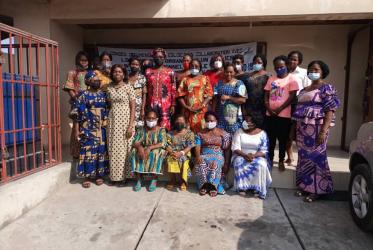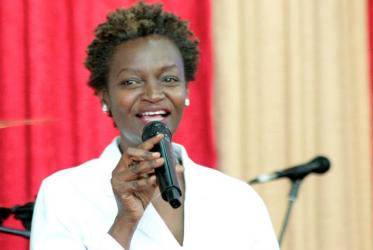“Because God Loves Me—Affirming My Value in Christ,” a new curriculum written in French that is designed to help children ages 7-12 address gender-based violence.
Though the curriculum, edited by Yvette A. Kelem and Blandine E. Ackla, was developed for use primarily with churches and church groups in Africa, it is relevant and accessible for other French-speaking populations as well.
The Christian education programme encourages the full involvement of children, adolescents and youth in becoming early proponents of nonviolence. Developed for children's Bible study leaders, teachers, parish volunteers, and others who work with children, the curriculum serves as a guide to help churches live into their responsibility to protect all children, girls and women from gender-based violence.
20 May 2021










